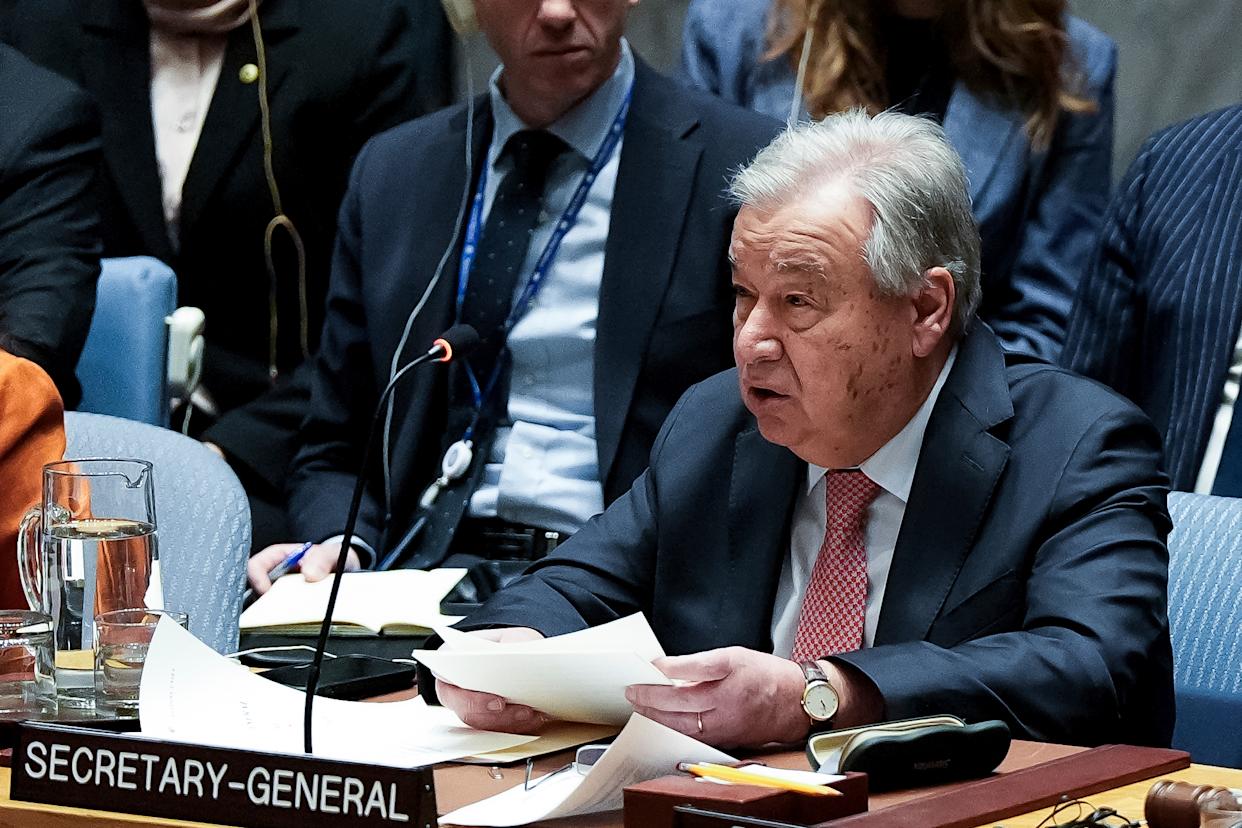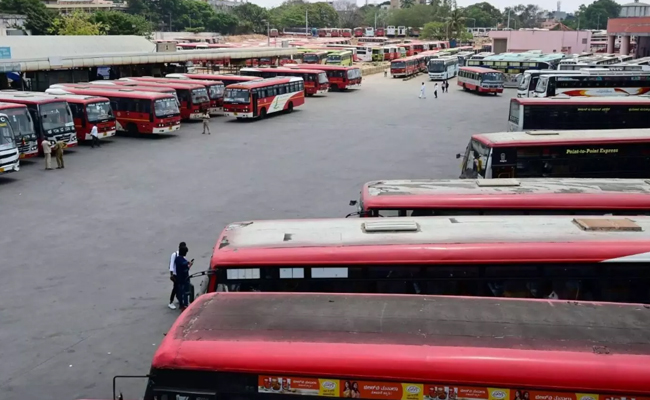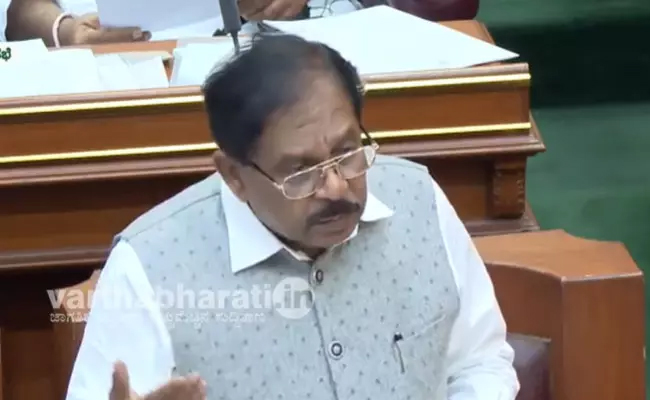United Nations (PTI): UN Secretary General Antonio Guterres has announced a new initiative aimed at improving efficiencies at the 80-year-old world organisation and making it more cost-effective, as he voiced concern over shrinking resources and liquidity crisis amid an environment of "uncertainty and unpredictability".
The ‘UN80 Initiative’ will come up with proposals in areas of rapidly identifying efficiencies and improvements in the way the UN works; thoroughly reviewing implementation of all mandates given to the UN by member states, which have significantly increased in recent years and a strategic review of deeper, more structural changes and programme realignment in the UN system.
“Our world is facing challenges on every front. Since the United Nations reflects that world in all its aspects, we feel it in all our work. These are times of intense uncertainty and unpredictability,” Guterres said here on Wednesday in his remarks to announce the initiative.
Guterres has appointed a dedicated internal task force led by Under-Secretary-General Guy Ryder – and composed of principals representing the entire UN system.
Voicing concern that the world body’s “resources are shrinking across the board – and they have been for a long time,” Guterres said that for at least the past seven years, the United Nations has faced a liquidity crisis because not all Member States pay in full, and many also do not pay on time.
Guterres stressed that it is essential that an organisational system as complex and crucial as the United Nations subjects itself to “rigorous and regular scrutiny to assess its fitness for purpose in carrying out its goals efficiently.
“And this 80th anniversary year of the United Nations is a prime moment to expand all our efforts, recognizing the need for even greater urgency and ambition,” the UN chief said.
When asked if the UN80 initiative was a UN version of the Department of Government Efficiency, led by billionaire Elon Musk in US President Donald Trump’s administration, he replied in the negative.
“First of all, nothing to do with that kind of initiative. We are talking about completely different processes, methodologies and objectives. This is a continuation and an intensification of work that we have always been doing,” Guterres said as he cited examples of efforts being undertaken in the system to be more effective and cost-effective.
Trump, in his second term in the White House, announced that America will withdraw from and end funding to certain UN organizations. The US said it would not fund the UN Relief and Works Agency for Palestine Refugees in the Near East (UNRWA) or the UN Human Rights Council (UNHRC) and that the United States will not satisfy any claims to pay 2025 assessments or prior arrears by these organizations.
“The United States helped found the United Nations (UN) after World War II to prevent future global conflicts and promote international peace and security. But some of the UN’s agencies and bodies have drifted from this mission and instead act contrary to the interests of the United States while attacking our allies and propagating anti-Semitism,” the White House had said.
The Trump administration also said that no further United States foreign assistance shall be disbursed in a manner that is not fully aligned with the foreign policy of the President of the United States.
Guterres noted that the recent cuts that were made in relation to humanitarian aid and development cooperation, not only by the United States but by other countries, even if in a smaller dimension “naturally have led to the need by the agencies that deliver those services to reduce staff, to shrink their dimension and to eliminate many activities. But again, this is not a problem for the United Nations. I mean, agencies are resilient and so, when necessary, they adjust to the circumstances.”
The UN chief added that even as thousands of staff have been laid off by several agencies, this will pose a problem not for the UN but for the people.
“The UN is resilient. The UN can adapt itself to the circumstances. The problem is for the people – I mean, if more people will die with HIV/AIDS or malaria or with TB. If [the cutoff of] humanitarian aid to fragile communities will make their life even more difficult and will have dramatic consequences, not only from a life-saving perspective but from the perspective of the most basic forms of well-being, that is something we cannot correct.
"We can adapt the UN, consolidate the UN, make the UN more effective and more cost-effective. What we cannot do is solve the problems of the people that we no longer are able to assist, for lack of resources," he said.
The UN General Assembly approved a USD 3.72 billion budget for the United Nations for 2025. The US is the single largest financial contributor to the UN, paying 22% of the regular budget and 27% of the peacekeeping budget. The approved budget for UN Peacekeeping operations for the fiscal year 1 July 2024 - 30 June 2025 is USD 5.6 billion and at 26.95%, the US is the largest contributor to United Nations peacekeeping operations.
In January this year, India paid USD 37.64 million to the United Nations Regular Budget for 2025, joining the "honour roll" of 35 Member States who paid their regular budget assessments in full and on time to the UN. India has consistently been among the countries to pay its contributions to the UN budget on time and in full.
Guterres stressed that the need is great and the goal is clear: an even stronger and more effective United Nations that delivers for people and is tuned to the 21st century.
"Budgets at the United Nations are not just numbers on a balance sheet – they are a matter of life and death for millions around the world. We must ensure value for money while advancing shared values," he said.
Let the Truth be known. If you read VB and like VB, please be a VB Supporter and Help us deliver the Truth to one and all.
Bengaluru: The Karnataka State Road Transport Corporation will operate 1000 additional special services in view of the Christmas festival.
In addition to the existing schedule, the special services will run on 19.12.2025, 20.12.2025 and 24.12.2025. Further, special buses will be operated from various places of intra & Interstate places to Bengaluru on 26.12.2025 & 28.12.2025.
Special buses will be exclusively operated from Bengaluru Kempegowda Bus Station to Dharmastala, Kukkesubramanya, Shivamogga, Hassan, Mangaluru, Kundapura, Shringeri, Horanadu, Davangere, Hubbali, Dharwad, Belagavi, Vijayapura, Gokarna, Sirsi, Karwar, Raichur, Kalaburagi, Ballari, Koppala, Yadgir, Bidar, Tirupathi, Vijayawada, Hyderabad and other places.
ALSO READ: Bengaluru: Shopkeeper stabbed for refusing to serve free panipuri
Special buses from Mysuru Road Bus Station will be exclusively operated towards Mysuru, Hunsur, Piriyapatna, Virajpet, Kushalanagar, Madikeri.
The corporation has also announced a discount of 5 per cent on the fare if four or more passengers book tickets under a single reservation. A discount of 10 per cent will be extended on return journey tickets if onward and return tickets are booked simultaneously.
In addition to the above, special buses will be operated from all Taluk/District Bus Stands in the jurisdiction of KSRTC based on the traffic needs.





